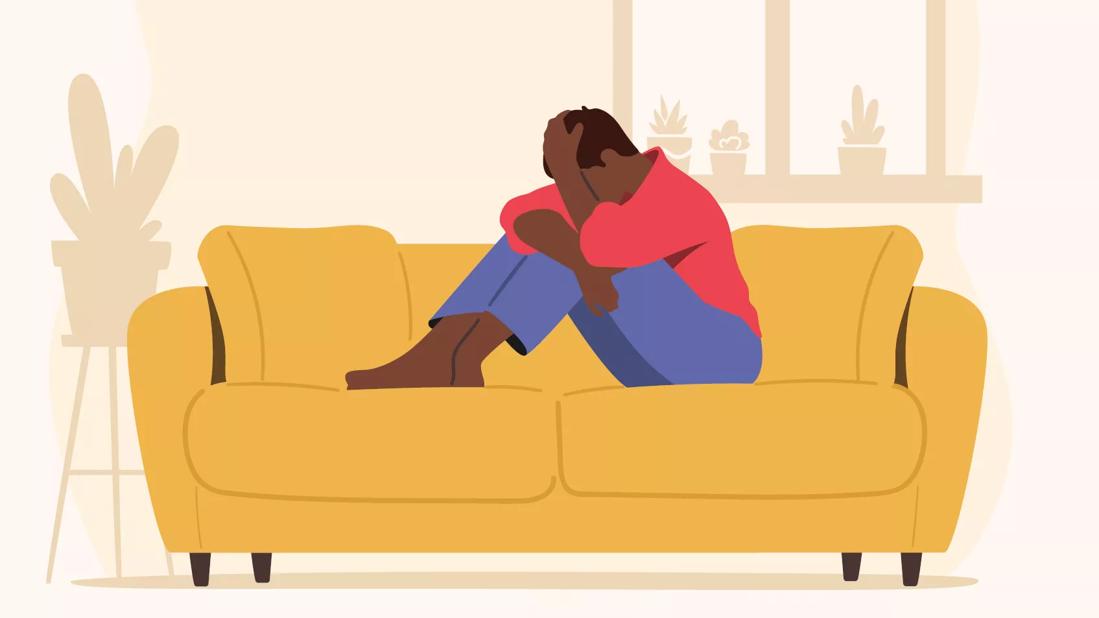Find out if there’s a link between these two conditions

It’s no secret that high cholesterol is a risk factor for multiple serious health problems. This includes coronary artery disease, which itself can lead to serious issues like a heart attack or other painful heart conditions.
Advertisement
Cleveland Clinic is a non-profit academic medical center. Advertising on our site helps support our mission. We do not endorse non-Cleveland Clinic products or services. Policy
“The effects of high cholesterol build up over the years,” says cardiologist Luke Laffin, MD. “We have to be aggressive about trying to lower it. Over long periods of time, high cholesterol increases the risk for strokes, heart attacks and hardening of your arteries, called atherosclerosis. Those are the main things we worry about.”
If you have high cholesterol and also find yourself having frequent headaches or bouts of dizziness, it might be tempting to think there’s a direct link between the two. However, Dr. Laffin explains why that’s not the case.
Most people with high cholesterol show no symptoms until they have a heart attack or a stroke, or experience angina, a painful heart condition.
Given this, does high cholesterol cause headaches? “There’s no definitive evidence that it does,” Dr. Laffin says.
If your cholesterol levels are extremely high, the physical symptoms are different. “We might see deposits of cholesterol in certain unexpected areas, such as your elbows or the Achilles tendon,” Dr. Laffin says. “Particularly in younger people, you might see cholesterol buildup or deposits in the eye if levels are high.”
Where confusion arises is that conditions frequently associated with high cholesterol — not high cholesterol itself, on its own — can sometimes cause headaches.
Advertisement
“I see a lot of people asking, ‘Is my high blood pressure causing headaches?’ That’s a pretty common question,” says Dr. Laffin. The “vast majority of the time” the answer is no, he adds. “Your brain has a remarkable ability to adapt to high blood pressure levels for short periods of time. But if these levels are severely elevated, you can get headaches.”
High blood pressure and high cholesterol are also risk factors for atherosclerosis. “How that contributes to headaches is a little bit questionable,” says Dr. Laffin. However, that plaque buildup in your arteries can also cause high blood pressure, which in turn can lead to a stroke.
Dr. Laffin notes that there’s isn’t any research that proves high cholesterol causes migraine headaches. “We often think of migraine headaches as perhaps a vasodilation phenomenon,” he says, or something that occurs when blood vessels expand, or dilate. “That’s a completely separate phenomenon from atherosclerosis.”
In the last few years, however, several studies have found interesting associations between cholesterol levels and migraine headaches.
For example, a 2015 study found that people who had frequent, intense migraines had higher total cholesterol levels and higher levels of LDL (or bad) cholesterol. When people in the study received three months of treatment, which helped reduce their migraines, these levels decreased.
However, this study included just 52 people, which is too small of a pool to draw major, sweeping conclusions. And the results don’t mean high cholesterol is causing these migraines. “The general take-home is there’s an association when we’re talking about migraine headaches,” Dr. Laffin says. But that doesn’t necessarily mean cause and effect.
A separate 2011 study found that people who have migraine with aura — a specific kind of migraine that comes with vision or speech changes — had higher total cholesterol and triglycerides levels when compared to people who didn’t experience headaches. However, this is also a case of association — meaning you can’t say that the higher cholesterol levels caused them to have migraine with aura.
Plus, this study was conducted only with participants in the Epidemiology of Vascular Aging Study, who were classified as elderly. In other words, there isn’t scientific evidence this holds true for people of all ages.
If you say you’re feeling dizzy, you might be describing a physical symptom of a more serious issue.
“Dizziness is this nonspecific term that people tend to use to describe a whole bunch of different things,” notes Dr. Laffin. “Room spinning, and that vertigo-like sensation, are very different from lightheadedness.”
Advertisement
Dr. Laffin says feeling like the room is spinning can often be from vertigo or an inner ear problem, and not clearly associated with cardiovascular disease. Lightheadedness, however, can definitely be a sign of a heart-related ailment.
“Say you have plaque buildup or cholesterol in your carotid arteries and not enough blood flow, or if you have narrowing of certain heart valves, or if you have arrhythmias,” Dr. Laffin says, “these can lead to what some people would call dizziness, but is probably more appropriately termed lightheadedness.”
Advertisement
Learn more about our editorial process.
Advertisement

There isn’t enough research to recommend the supplement as a solution for lowering LDL levels

You may notice a decrease in your LDL ‘bad’ cholesterol in about four weeks

In the world of cholesterol, HDL particles are ‘good’ and LDL particles are ‘bad’ for your heart health

Medications known as statins can lower cholesterol levels to minimize the risk of blocked arteries

Fatty fish, flaxseed, extra virgin olive oil and nuts may help raise your HDL number

Grapefruit contains natural chemical compounds that can interfere with certain medications when it’s consumed in large amounts

Up to 30% of people who take the cholesterol-lowering medication feel aches and soreness

There’s not enough evidence to show that this supplement has any effect on muscle aches from cholesterol-lowering meds

The tropical fruit is a good source of antioxidants and vitamin C

Most people fall asleep within 10 to 20 minutes, but if your experience is different, adjusting your sleep schedule may help

Exploring your hidden side can lead to better understanding of what makes you tick